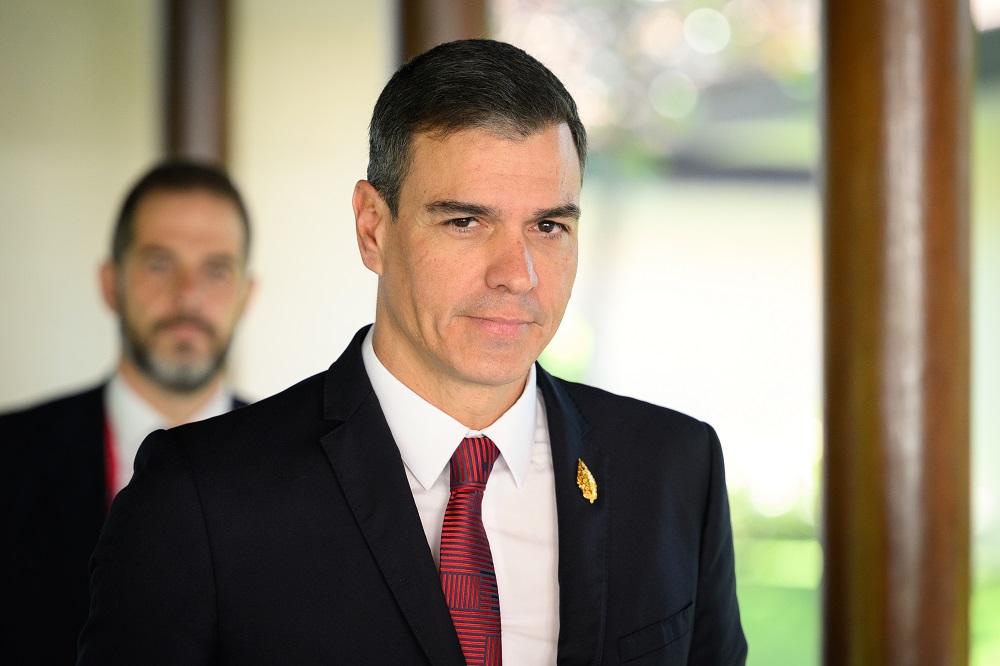Basques and Catalans resist right turn in Spain’s local elections

Luke James
Attacks on Spain’s socialist premier for governing with pro-independence MPs has helped right-wing parties win the country’s local elections at the expense of Madrid’s relations with the Basque Country and Catalonia.
The conservative Partido Popular (PP) has overtaken the ruling Socialist party in both the popular vote and the number of councillors elected, while far-right Vox doubled its support to 1.6 million votes and tripled its number of councillors to 1.695.
Spain’s swing to the right came after a campaign in which Prime Minister Pedro Sanchez, who leads a minority government, was targeted for relying on parliamentary support from pro-independence parties in the Basque Country and Catalonia.
The PP said it was “shameful” Sanchez was cooperating with Basque pro-independence party, EH Bildu, after it emerged former members of the disbanded terror group ETA were among their candidates.
The attacks, coupled with the collapse of the populist Ciudadanos party, helped the PP increase their vote by 9%, take control of Madrid and make advances in normally socialist areas like Valencia and Seville.
It points towards a return to power for the PP at July’s snap general election called by Sanchez today in response to the results.
But the “antagonistic” campaign has been a double edged sword for the conservatives, according to one Basque expert.
Projectiles
“The right has been using Basque and Catalan themes as projectiles against the Socialist party, which needs the support of both to carry out its policies,” Dennis Sorondo Salazar, Visiting Scholar at Cardiff University’s Wales Governance Centre, told Nation.Cymru.
“While at the national level the right is strengthened in the face of the failure of a divided left, at the regional level, even though the right has won support, there is a reaction against the centralist ‘attacks’ and people have voted for more nationalist and leftist positions.”
In the Basque Country, the left-wing EH Bildu won more councillors than the previously dominant centrist Basque National Party and were neck and neck in the popular vote.
“For the first time on the Basque electoral board, the hegemony of the Basque Nationalist Party seems to be cracking,” added Sorondo Salazar.
EH Bildu also increased its support in Nafarroa, which is part of the historic Basque Country but is separate from the Basque autonomous community.
In Galicia, the left-wing independentist Bloc Nacionalista Galego, won 5% more votes and more than 100 news councillors.
And in Catalonia, pro-independence centrists Junts Per Catalunya look set to lead Barcelona after its former mayor Xavier Trias beat incumbent Ada Colau of left-wing Podemos.
In contrast to the rest of the state, Sanchez’s socialist increased their number of councillors and won the highest number of votes.
Despite losing support, the centre-left Esquerra Republicana de Catalunya, which leads the country’s minority government, still has the highest number of councillors.
The PP made small gains in Catalonia and the Basque Country. But the party finished first in just four of over 900 races in Catalonia and won around 3% of seats in the Basque Country.
The PP’s Mariano Rajoy was Prime Minister during the brutally suppressed 2017 Catalan independence referendum.
Since Sanchez came to power in 2018, the Spanish government has tried to ease the constitutional crisis through negotiations with the Catalan government.
Support our Nation today
For the price of a cup of coffee a month you can help us create an independent, not-for-profit, national news service for the people of Wales, by the people of Wales.





I appreciate this report. It’s hard to find news from the perspective of Catalunya, Euskal Herria and Galicia if you’re not based there. Keep it up.
Celtic Federation nations could / should launch a news site. Or go to pressreader.com, instant access to the world’s press fully searchable